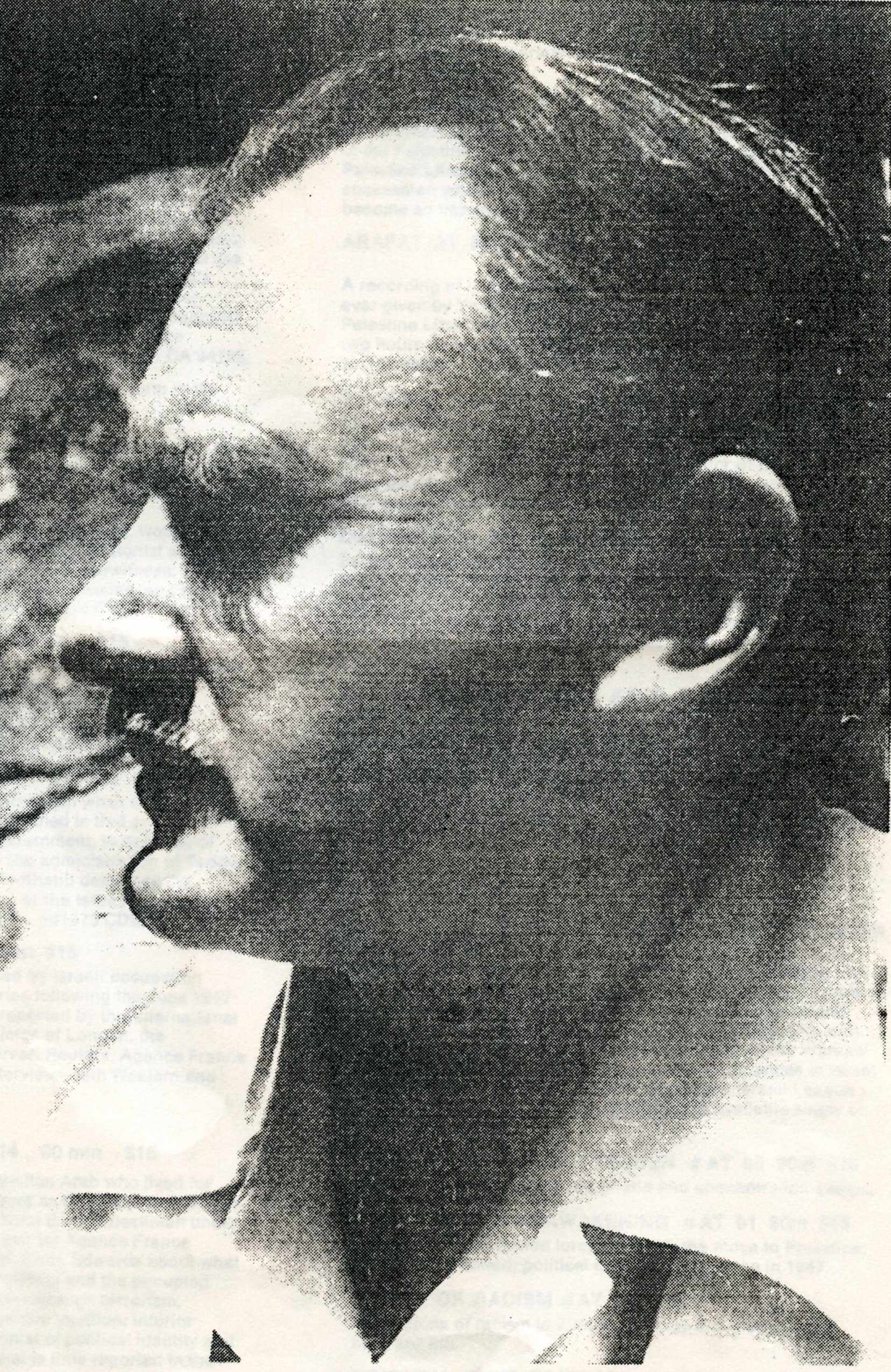Independent Collections
These collections were produced by independent journalists. Many of these recordings make up the bulk of the original collection of the Freedom Archives.
Subcollections
-
Colin Edwards Collection
Materials representing the life-work and journalism of a Welsh radio correspondent and journalist who worked for Pacifica stations, the BBC and many other broadcasters. -
Colin Edwards Free Speech Movement
This collection is produced by journalist Colin Edwards and represent a comprehensive account of the Free Speech Movement and its effect on the political climate of UC Berkeley. -
Programs produced by Kiilu Nyasha
Kiilu Nyasha is a revolutionary journalist and former member of the Black Panther Party. Kiilu still hosts Freedom Is A Constant Struggle, which now appears as a TV program. -
“Nothing is More Precious Than…” a news magazine including music and poetry
KPFA weekly news program running from 1973-1976 featuring in-depth coverage of liberation struggles around the world. -
“The Real Dragon” a news magazine including music and poetry
Real Dragon was a radio program broadcast on KPFA from 1971-1973. This news show focused on issues of national liberation, political prisoners, Vietnam and other major national and international topics.
Documents
6 Documents Found
Date: 1/1/1111Call Number: CE 391Format: 1/4 7 1/2 ipsProducers: Colin EdwardsCollection: Colin Edwards Collection
Discussion of Arab unity from the Atlantic to the Arab Gulf. Also about Lebanon fighting against the colonial powers before 1948 and Palestinian Resistance Fighters. He says it is regrettable that the US does not recognize the need for Palestinian liberation and peace.
Call Number: CE 399Format: 1/4 7 1/2 ipsProducers: Colin EdwardsCollection: Colin Edwards Collection
Peter Atkin-head, a member of the British Jewish Student Organization, makes an appeal to his brothers in occupied Palestine. He talks about the creation of the Zionist ideology
and the necessary unity of all oppressed peoples of the world. He discusses the strategy Zionists used to portray Israel as a socialist utopia and calls to take up arms with the Palestinians.
Fred Halliday, the founder of the Palestinian Solidarity Campaign. The PSC supports Palestine morally, monetarily, and by embarrassing British and Israeli leaders and exposing truths through the media.
Date: 4/27/1992Call Number: CE 486Format: Cass A & BProducers: KALWProgram: Alternative RadioCollection: Colin Edwards Collection
Russell Means, Oglala Sioux activist, speaks in response to Andy Rooney's column on how it is "silly" for Native Americans to complain about professional sports team names.
Means discusses the image of Native Americans, as opposed to Blacks in America. He combats the claim that Native Americans have no great culture and complicates the idea of Native American contribution. He discusses the effects of nuclear waste on Indian Reservations, or what he calls "concentration camps." He puts responsibility on the white citizens of America to see to it that the US government follows its own laws, and to curb the waste it produces.
For things to change, people must "Kill Columbus - kill his legacy."
Date: 5/1/1963Call Number: CE 641Format: 1/4 7 1/2 ipsProducers: Collin B. EdwardsProgram: Californians of Mexican descentCollection: Colin Edwards Collection
Details a brief history of California from the conquest of Spain until the early 1900s. Discusses missionaries, the development of pueblos (mission settlements), and immigration from US to Mexico in the early 1900s. Interviews from Californians about family immigration narratives.
This interview spans a wide range of issues related to Sudan and the situation regarding the domination of Northern Sudan (Arab and Muslim) over Southern Sudan (Black and Christian). This dynamic is further explored and explained during the hour long conversation. The speaker plays down divisions between Black Africans and Arabs and instead of race and religion, the speaker identifies underdevelopment as the real root of the problem. Other topics include how the end of British colonialism affected Sudan, the role of missionaries in the colonial process and post-colonial development, challenges of nation building, the prospect of succession and how other events in Africa relate to Sudan. Sudan’s position on Palestine and Vietnam is also discussed.
 Real Dragon
Real Dragon
Date: 5/26/1971Call Number: RD 002Producers: Lincoln BergmanProgram: Real DragonCollection: “The Real Dragon” a news magazine including music and poetry
News reports of May 26, 1971 march on Washington of over 15,000 to protest against President Richard Nixon and voice outrage over his administration's racist actions toward South Africa. The day is called African Liberation day.
6 Documents Found






